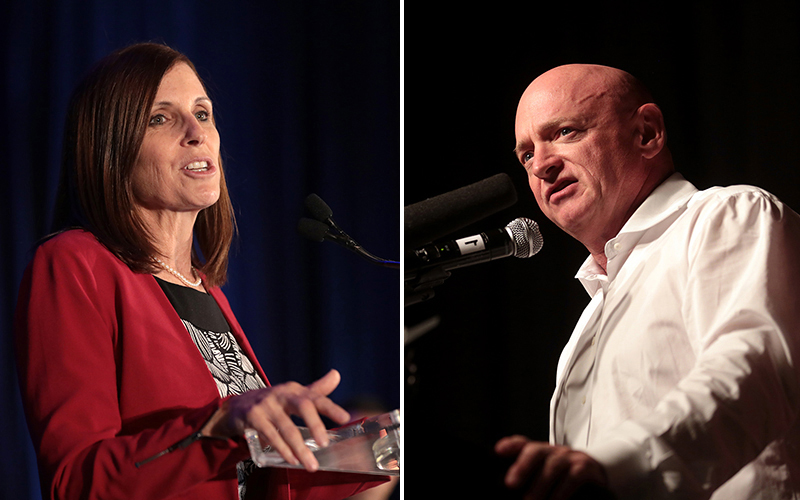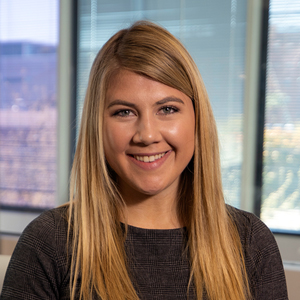PHOENIX – Time is running out for voters to request mail ballots and for voters in nursing homes and hospitals to get help from a special elections team, state and county election officials said Thursday.
“There is still time to do so for this general election. But you must do it by tomorrow (Friday),” Secretary of State Katie Hobbs said at a news conference at the state Capitol.
The deadline to request a ballot by mail or a special election board from a county recorder is 5 p.m. Friday, she said. Special election boards help Arizonans in hospitals or a long term care facility, and anyone with a severe illness or disability, cast their ballots. Board members make in-person visits and conduct video conferences to ensure the right to vote is respected.
There’s still a chance to request the help of a special election board through Nov. 2 – the day before Election Day – if a voter can show that an emergency prevented them from asking earlier, Maricopa County Recorder Adrian Fontes said. But that help is not guaranteed after Friday, officials warned.
Representatives from AARP and the Arizona Center for Disability Law joined Hobbs and Fontes at the news conference to answer frequently asked questions about the rights of voters living in long term care facilities. The law center is operating a voter hotline through Election Day.
“We’ve moved forward early on as recorder to have a full time coordinator for special election boards,” Fontes said. “These are authorized by federal law to assist voters with disabilities to make sure that they have their right to vote.”
Fontes described the board as “a two-person board of opposite political parties” that assists voters “who otherwise would not have access to the ballot.”
“For example, if you’re in a long term care facility and under quarantine, you can now have someone come and assist you to administer the ballot,” he said, adding that his office has received 144 such requests.
A Maricopa County Superior Court judge on Oct. 6 ruled that because of visitation restrictions at long term care facilities imposed to slow the spread of COVID-19, Arizonans in those facilities may be eligible to vote via video conference with help from a special election board.
The ruling by Judge Randall H. Warner came after Attorney General Mark Brnovich and Gov. Doug Ducey asked that the court deny plans to allow virtual voting.
At the time, Hobbs argued that voters in hospitals or assisted living arrangements should be allowed to cast their ballot via teleconference.
“There are many communities where barriers continue to exist, and in fact the pandemic has exacerbated or highlighted those barriers even more,” she said.
Brnovich and Ducey argued that nothing in Arizona law allows voters to cast ballots via video conference or exempts special election boards from helping voters in person.
Brnovich also argued that the plan poses risk of voter fraud. Warner’s ruling says the chances of that are low because bipartisan special election boards act as a safeguard against voter fraud.
Although state law may not address such virtual voting, the judge wrote, the particular circumstances set forth by COVID-19 require additional procedures to ensure both voter safety and access to voting.
“It makes no difference whether, under Arizona’s COVID-19 guidelines, hospitals or care centers have to allow special election boards to enter,” the ruling says. “The issue is not the legal impediment to in-person contact, it is the health risk. Federal law does not allow Arizona to impose on a disabled voter the choice between voting and protecting their health.”
Fontes outlined key features of voting procedures for Arizonans who can’t physically mark a ballot. Members of the special election board team will go through the ballot with the voter and ask the voter’s selection for each candidate or issue.
They then will hold the ballot up to the camera and ask the voter for confirmation that the correct choice was marked.
After the voter’s confirmation the selections are correct, the special election board will place the ballot in an affidavit envelope, print the voter’s name and write, “Voter unable to sign due to COVID-19 rules” in the signature box.
More information on requesting special election boards, voting via teleconference and mail-in ballots can be found at arizona.vote.
Cronkite News reporter Alexander Gaul contributed to this report.
 Want more on the 2020 elections? Cronkite News, Arizona PBS and Indian Country Today have teamed up to bring you comprehensive election coverage. Click here for more.
Want more on the 2020 elections? Cronkite News, Arizona PBS and Indian Country Today have teamed up to bring you comprehensive election coverage. Click here for more.


